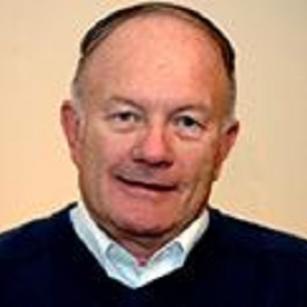
77 Massachusetts Ave.
Cambridge, MA 02139
Degrees
- PhD in Electrical Engineering, Massachusetts Institute of Technology, 1966
- MD, Harvard Medical School, 1965
- SB in Electrical Engineering, Massachusetts Institute of Technology, 1960
Bio
Dr. Mark conducts research aimed at improving health care through the generation of new knowledge, monitoring technology and clinical decision support by applying physiological signal processing, data science and machine learning to large collections of critical care data. His group launched the NIH-supported “PhysioNet” (Research Resource for Complex Physiologic Signals) in 1999 to provide open access to major collections of well-characterized physiologic signals and associated signal processing software. His group and others have continued to add data collections to PhysioNet, and it has been the basis of thousands of research publications worldwide. His NIH-funded project, “Critical Care Informatics,” is focused on transforming massive archives of critical care clinical data into new knowledge that will improve the efficiency, accuracy, and timeliness of clinical decision making in intensive care. That project develops and openly shares large high-resolution clinical databases containing detailed EHR data from ICU and ED admissions, monitor waveforms, and images such as CXRs, ECGs, and Echocardiograms. These databases have been added to the archives of PhysioNet, and currently more than 55,000 credentialed users worldwide are using them for original research. Dr. Mark’s own research has depended critically on access to physiologic and clinical data, and he is firmly committed to the importance of making such data freely available to the research community
Research
Dr. Mark’s research activities focus on physiological signal processing and database development, cardiovascular modeling, and machine learning for critical care decision support and predictive modeling. His group launched the NIH-supported “PhysioNet” (Research Resource for Complex Physiologic Signals) in 1999 to provide open access to major collections of well-characterized physiologic signals and associated signal processing software. His group and others have continued to add data collections to PhysioNet, and it has been the basis of thousands of research publications worldwide. His NIH-funded project, “Critical Care Informatics,” is focused on transforming massive archives of critical care clinical data into new knowledge that will improve the efficiency, accuracy, and timeliness of clinical decision making in intensive care. That project develops and openly shares large high-resolution clinical databases containing detailed EHR data from ICU and ED admissions, monitor waveforms, and images such as CXRs, ECGs, and Echocardiograms. These databases have been added to the archives of PhysioNet, and currently more than 30,000 credentialed users worldwide are using them for original research. Dr. Mark’s own research has depended critically on access to physiologic and clinical data, and he is firmly committed to the importance of making such data freely available to the research community.
Selected Awards/Societies
- Association for the Advancement of Medical Instrumentation 2016 Laufman-Greatbatch Award
- Fellow, Institute of Electrical and Electronics Engineers (IEEE)
- Fellow, American College of Cardiology
- Fellow, American Institute of Medical and Biological Engineering
Selected Publications
- Raffa JD, Johnson AEW, O'Brien Z, Pollard TJ, Mark RG, Celi LA, Pilcher D, Badawi O. “The Global Open Source Severity of Illness Score (GOSSIS).” Crit Care Med. 2022 50.7:1040-1050.
- Mollura M, Lehman LH, Mark RG, Barbieri R. “A novel artificial intelligence based intensive care unit monitoring system: using physiological waveforms to identify sepsis.” Philos Trans A Math Phys Eng Sci. 2021;379(2212):20200252.
- Johnson AEW, Pollard TJ, Berkowitz SJ, Greenbaum NR, Lungren MP, Deng CY, Mark RG, Horng S. “MIMIC-CXR, a de-identified publicly available database of chest radiographs with free-text reports.” Sci Data. 2019; 6(1):317.
- Pollard TJ, Johnson AEW, Raffa JD, Celi LA, Mark RG, Badawi O. “The eICU Collaborative Research Database, a freely available multi-center database for critical care research.” Sci Data. 2018 Sep 11;5:180178.
- A. E. W. Johnson, T. J. Pollard, L. Shen, L. H. Lehman, M. Feng, M. Ghassemi, B. Moody, P. Szolovits, L. A. Celi, and R. G. Mark. “MIMIC-III, a freely accessible critical care database.” Sci Data 3.160035 (2016).
- J. Danziger, K. Chen, J. Lee, M. Feng, R. G. Mark, L. Celi, and
K. J. Mukamal. “Obesity, acute kidney injury, and mortality in critical illness.” Crit Care Med 44.2 (2016): 328-34. - E. Morgado, F. Alonso‐Atienza, R. Santiago‐Mozos, Ó. Barquero‐Pérez, I. Silva, J. Ramos, and R. Mark. “Quality estimation of the electrocardiogram using cross‐correlation among leads.” BioMed Eng OnLine 14.59 (2015).
- E. J. de Louw, P. O. Sun, J. Lee, M. Feng, R. G. Mark, L. A. Celi, K. J. Mukamal, and J. Danziger. “Increased incidence of diuretic use in critically ill obese patients.” J Crit Care 30.3 (2015): 619-23.
- L. H. Lehman, R. P. Adams, L. Mayaud, G. B. Moody, A. Malhotra, R. G. Mark, and S. Nemati. “A physiological time series dynamics-based approach to patient monitoring and outcome prediction.” IEEE J Biomed Health Inform 19.3 (2015): 1068-76.
Courses Taught
- 6.022, Quantitative and Clinical Physiology
Description
Dr. Mark’s research activities focus on physiological signal processing and database development, cardiovascular modeling, and machine learning for critical care decision support and predictive modeling. His group launched the NIH-supported “PhysioNet” (Research Resource for Complex Physiologic Signals) in 1999 to provide open access to major collections of well-characterized physiologic signals and associated signal processing software.
